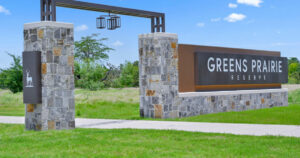New Biosecurity and Pandemic Policy Center Opens in College Station
College Station, TX – A significant step has been taken towards ensuring a safer future in the face of potential biological threats. Texas A&M has officially launched a brand new initiative called the Biosecurity and Pandemic Policy Center. This center is set to bolster efforts aimed at combating severe biological dangers like pandemics and biological weapons.
A Collaborative Effort for Global Safety
Situated within the Scowcroft Institute of International Affairs and backed by Texas A&M’s Bush School of Government and Public Service, the center aims to make a meaningful impact through high-impact, non-partisan research and education. According to John Sherman, the dean of The Bush School, this initiative is a continuation of their legacy. He stated, “Through the Scowcroft Institute, The Bush School has been a leader in policy on biosecurity. This new research capability will further grow the beneficial impact to society that The Bush School’s stellar faculty and students produce.”
Leading the Charge
The leadership of the Biosecurity and Pandemic Policy Center will be under the guidance of Dr. Gerald W. Parker, who is the associate dean of Global One Health at the College of Veterinary Medicine. Dr. Parker isn’t new to this; he’s an internationally renowned expert with a rich background in biosecurity and pandemic preparedness. His impressive credentials include numerous testimonies before Congress and advisory roles for reputable organizations such as the National Institutes of Health and the Department of Defense.
Focus on Prevention and Preparedness
Dr. Parker explained that the new center is designed to provide “evidence-based national and international policy options” aimed at reducing the risks posed by biological threats. Whether these threats arise from deliberate attacks, accidental releases, or natural outbreaks, the center will work to safeguard public safety, agriculture, and national security.
A Vision Since 2015
Interestingly, the seeds for this initiative were planted back in 2015. Andrew Natsios, director of the Scowcroft Institute, recalled that they created a program focused on pandemics long before the COVID-19 pandemic emerged. He emphasized, “We believed it was not a matter of if, but when, a pandemic would occur. The action of the Board of Regents will institutionalize our program into a more permanent structure as disease threats are growing more common and more deadly.”
What’s Next?
The establishment of the Biosecurity and Pandemic Policy Center marks a pivotal moment for Texas A&M and its commitment to addressing some of the world’s most pressing challenges. With the center’s non-partisan approach, it is set to be an inclusive space where various viewpoints can converge to tackle biosecurity effectively.
As we know, public safety and health are more crucial than ever, especially with the emergence of new viruses and the way our world is interconnected. This new center will not only make strides in research but will also educate future leaders on how to respond to biological threats in a comprehensive manner.
Community Impact
The implications of this center are far-reaching, not just for Texas but for the entire globe. By preparing for potential biological dangers proactively, we can work towards a future where communities can withstand and recover from health crises more proficiently.
In a world where uncertainties loom larger than ever, initiatives like the Biosecurity and Pandemic Policy Center offer a hopeful path forward. While nobody can predict the future, fortifying our response capabilities gives us a fighting chance against the unknown.
Stay tuned as Texas A&M continues to take bold steps in ensuring a safer, more resilient world.








